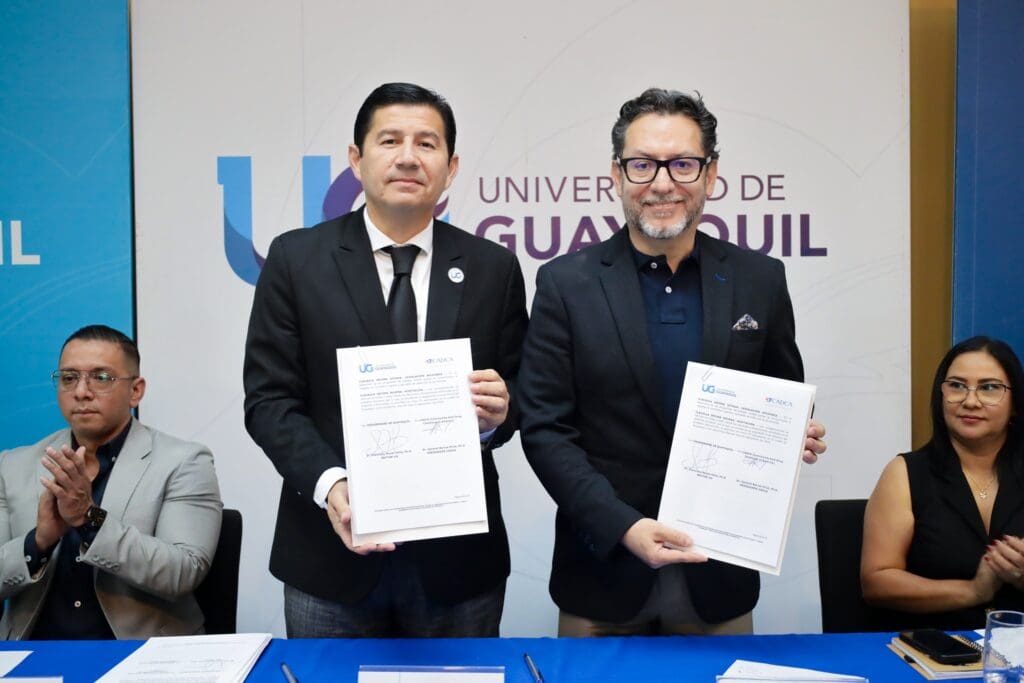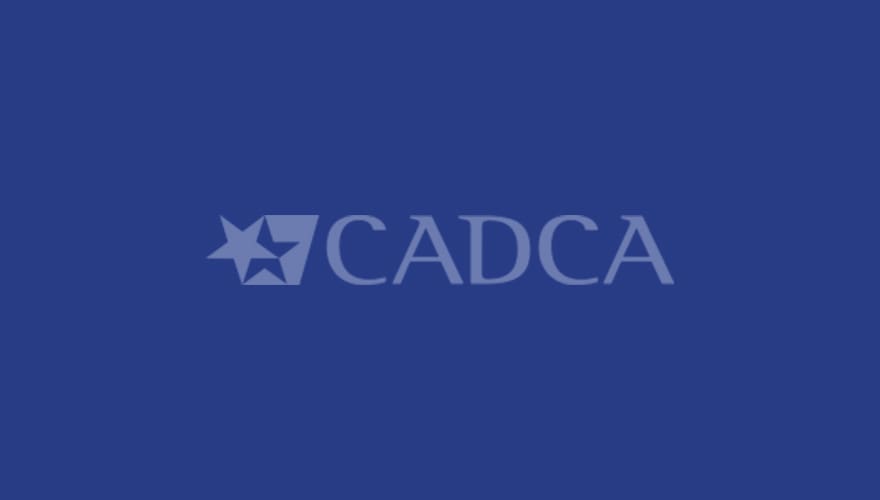CADCA is proud to announce a new framework agreement for interinstitutional cooperation with the University of Guayaquil, marking an important milestone in advancing substance use prevention and community coalition development in Ecuador.
The agreement, signed by Dr. Francisco Morán Peña, Rector of the University of Guayaquil, and Gonzalo Cadima, International Director for the Western Hemisphere of CADCA, sets the stage for joint efforts in knowledge transfer, applied research, and social intervention to sustainably strengthen community coalitions in Guayaquil, Ecuador.

Through this collaboration, faculty and students from the university’s 17 schools, representing more than 60,000 students, will have the opportunity to participate in continuing education programs, seminars, workshops, and other academic, scientific, cultural, and technological outreach events focused on the comprehensive prevention of the use of controlled substances.
“We’re thrilled to partner with an Ecuadorian university that has such a rich history of community outreach and human potential,” said Cadima. “This agreement will also reinforce the efforts of CADCA’s 16 existing coalitions across Ecuador.”
Rector Dr. Morán Peña shared that the partnership presents a meaningful way for students to complement their professional training, not only through learning in classrooms, laboratories, and libraries, but also through community service.
During the five-year duration of the partnership, participants will be able to develop initiatives focused on family strengthening, youth leadership development, and the promotion of protective, safe, and healthy environments, leveraging institutional strengths.
For nearly 20 years, CADCA has brought its mission to the global stage, supporting communities beyond U.S. borders in building safer, healthier, and stronger environments. Through training, technical assistance, and tailored resources, CADCA helps international coalitions develop sustainable, culturally relevant strategies to prevent substance use, particularly among youth. This partnership with the University of Guayaquil reflects that same vision and lays the groundwork for new approaches to prevention across Ecuador.


